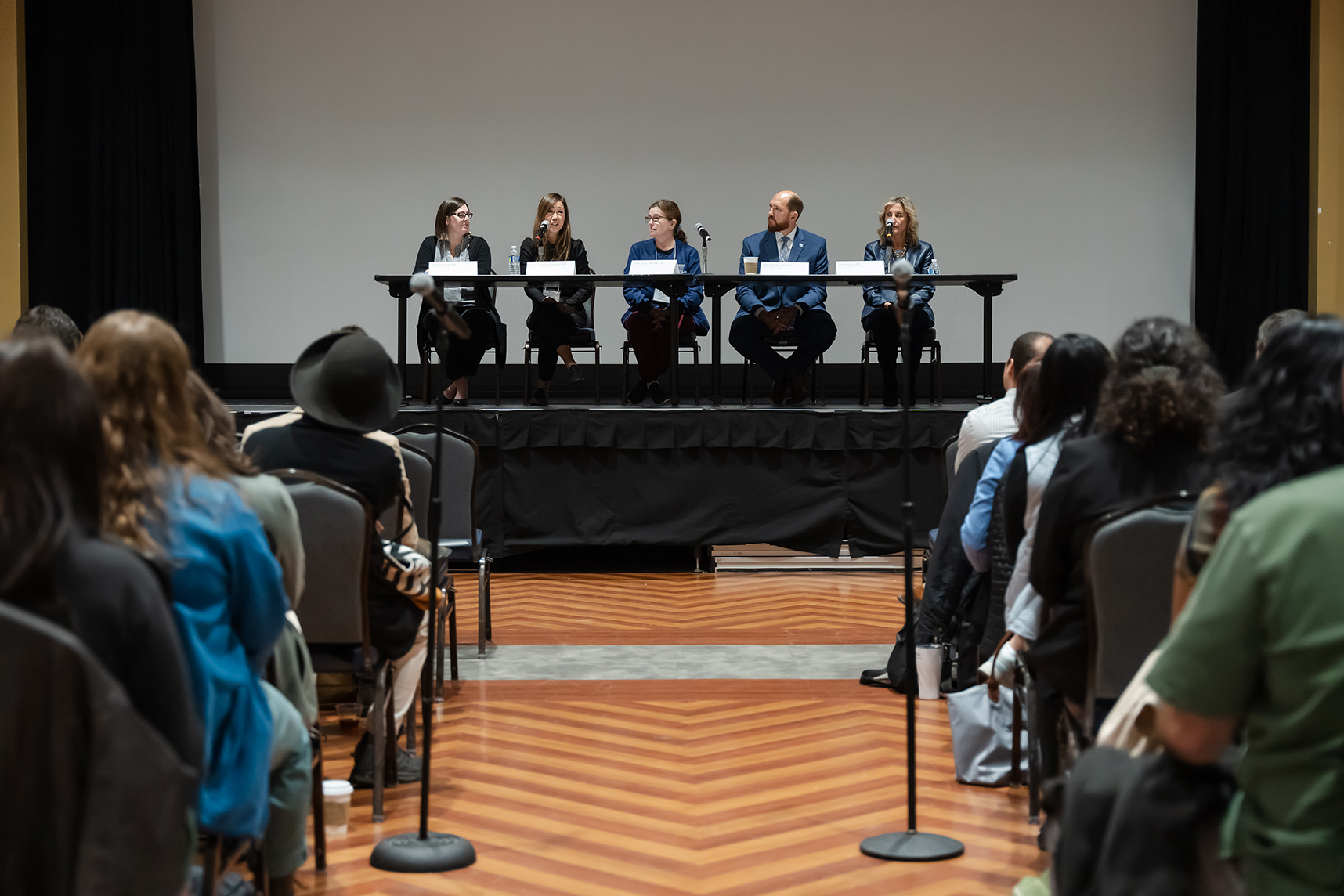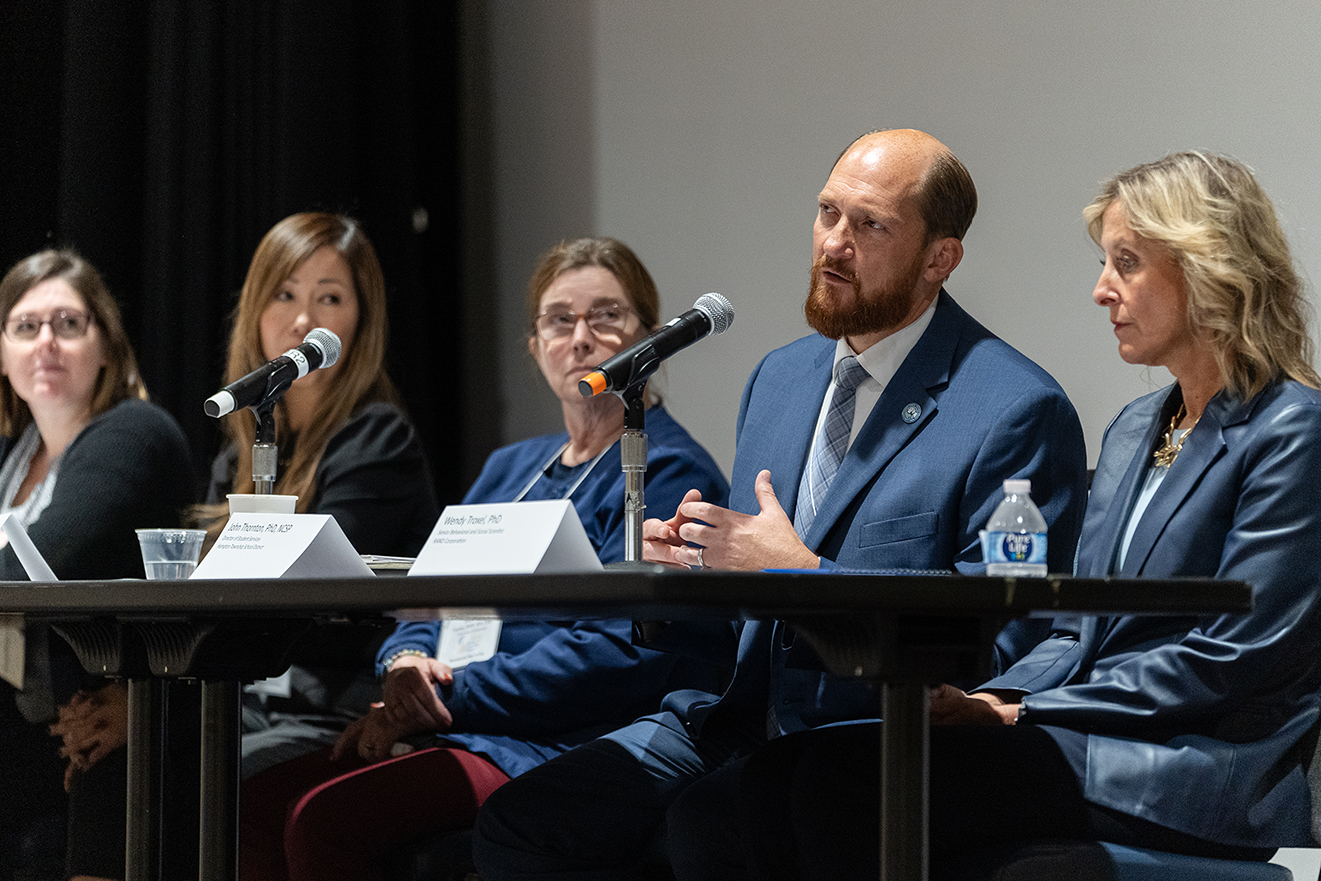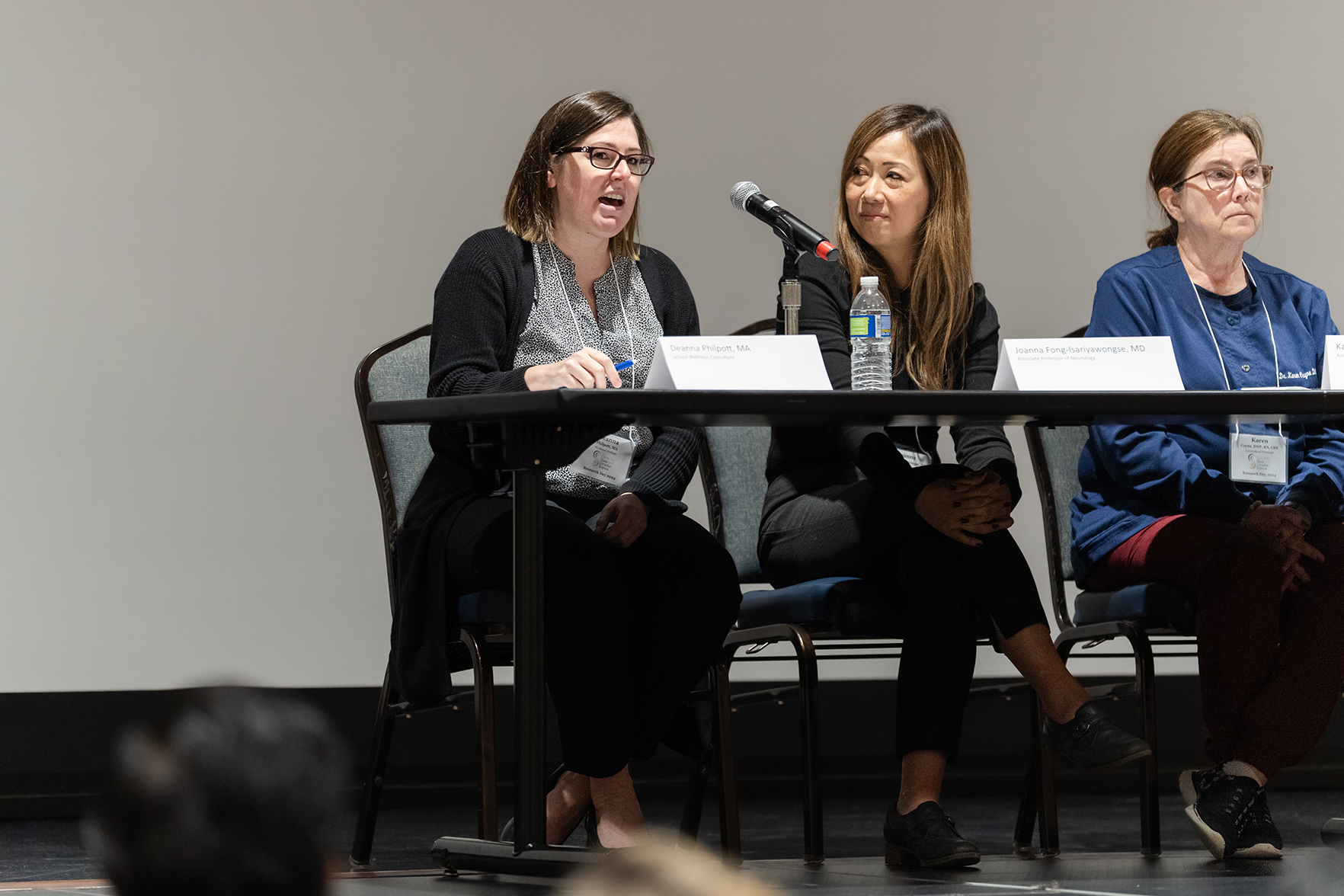by Kat Procyk

Sleep experts and some state legislators believe it’s time for a wake-up call for schools and their start times.
Panelists at a Nov. 12 event hosted by the University of Pittsburgh’s Center for Sleep and Circadian Science discussed the evidence for shifting the start of high school to later than the typical time, while acknowledging the challenges that presents. Teenagers need approximately eight to ten hours of sleep each night for their development and are biologically wired to fall asleep later than children and adults, experts have found. A combination of early school hours and bus times, extracurricular activities and a biological drive to fall asleep and wake up later is causing high levels of sleep deprivation in high school students.
Lack of sleep, as well as its quality and timing, for teens can cause mental health disorders, poor academic performance and health problems like obesity, cardiovascular issues and reduced immunity. Despite these concerns, scientists and activists alike have encountered policy challenges that prevent schools from starting later.
Michelle Stepan, assistant professor of psychiatry, School of Medicine, hosted a panel of sleep experts, community members and school administrators as part of the center’s annual research day, which highlights the innovative and transdisciplinary sleep and circadian research across the translational spectrum taking place here and at other local universities and institutions.
“We know that adolescence is truly an inflection point for the onset of mental health disorders into adulthood,” said Wendy Troxel, senior behavioral and social scientist at the RAND Corporation, licensed clinical psychologist and certified behavioral sleep medicine specialist. “We really need to think of adolescence as this critical period to improve mental health and consider multilevel strategies that can support teenagers’ mental health. Getting more sleep is one of them.”
According to data provided by the nonprofit organization Start School Later, as of April 2024, 37 out of 500 public school districts in Pennsylvania have changed their start times. Among them is Hampton Township, whose director of student services, John Thornton, was featured on the panel. After surveying students, Hampton Township School District’s administration found that over 77% of their high school students weren’t receiving adequate sleep, one of the factors that convinced Hampton Township to move their high school start times nearly an hour later. Despite evidence of sleep deficits and an additional year-long rollout, the new start time policy faced concerns due to childcare, sports conflicts, challenges with after-school jobs and students who attend the Career and Technical Center (CTC).

“It’s definitely a process,” Thornton said. “It’s easy on paper, but to move that needle takes a lot of work, discussions, and revisiting these topics again and again.”
Joanna Fong-Isariyawongse, associate professor of neurology, School of Medicine, consultant at UPMC Sleep Medicine Center and panelist, is a well-known advocate for later start times and successfully lobbied for the introduction of House Bill 1848, which proposed mandating secondary school start time for 8:15 a.m. or later, to Pennsylvania legislators. The bill is working through the legislative process, but Fong-Isariyawongse encouraged engaging with state representatives to understand the gravity of the problem so legislation could be passed with financial backing to help schools make the change.
“This is not a school issue,” Fong-Isariyawongse said. “This is a public health issue.”
Panelists Deanna Philpott, school wellness consultant at PA School Wellness, and Karen Coyne, assistant professor of nursing, School of Nursing, certified school nurse, said that in addition to teens, parents and school nurses are key stakeholders in this debate, as they witness the effects of teen sleep deficits.
“If this is something you care about, please don’t assume that somebody is already working towards it in your own community,” Philpott said. “The more people are speaking about it, the better.”

Photos by Rayni Shiring, University of Pittsburgh
